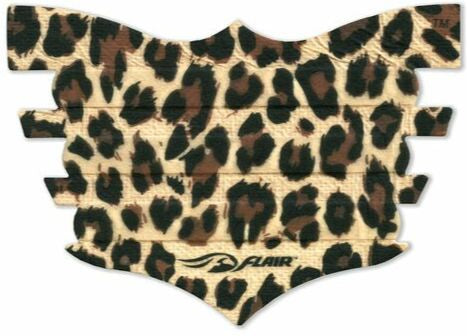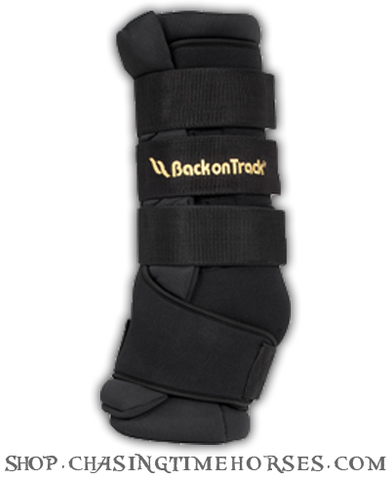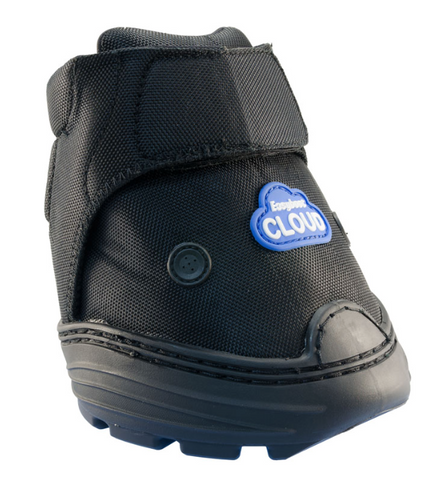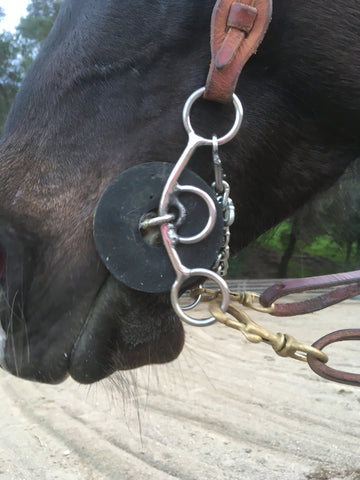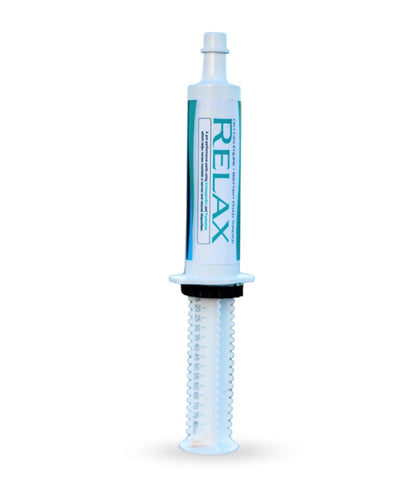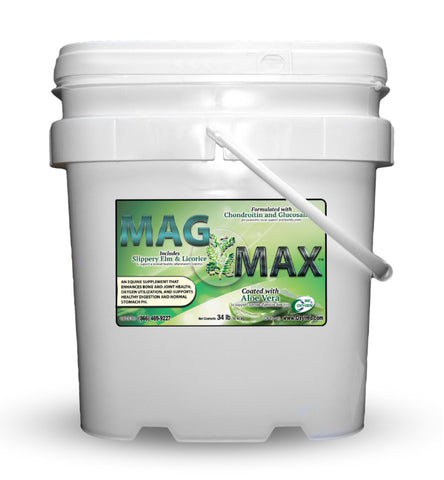
Mag Max
MAG-MAX™ is recommended to support normal lung function, to enhance the functions of joint and connective tissues, and to help maintain a healthy intestinal tract.
Active Ingredients per 170 g (one scoop):
Proprietary Blend — 8825 mg
(Octacosanol, Vitamin E)
Magnesium — 7710 mg
Glucosamine HCl (shellfish source) — 5113 mg
Glucosamine Sulfate (shellfish source) — 5113 mg
Proprietary GI Blend — 4610 mg
(Aloe, Aspergillus niger, Aspergillus oryzae, Bacillus amyloliquefaciens, Bacillus licheniformia, Bifidobacterium bifidum, Bifidobacterium infantis, Enterococcus lactis, Lactobacillus acidophilus, Lactobacillus brevis, Lactobacillus casei, Lactobacillus lactis, Lactobacillus plantarum, Licorice, Papaya, Pediococcus cerevisiae, Propionibacterium freudenreichii, Slippery Elm, Trichoderma longibrachiatum)
MSM (methylsulfonylmethane) — 4091 mg
Chondroitin — 1136 mg
Inactive Ingredients:
Alfalfa Meal, Apple Flavoring, Carob Bean Powder, Guar Gum, Powdered Cellulose, Salt, Soybean Meal, Soybean Oil, Vegetable Fat, Xanthan Gum, Zinc Methionine.
Learn More:
Aloe Vera - Aloe vera is known for being beneficial for the skin, stomach, lymph, and digestive health. It’s amazingly high in digestible fiber. Its best known to soothe the digestive system.
Chondroitin - Chondroitin is a major structural component of cartilage, bone, and tough connective tissues. Formal studies on chondroitin show its greatest benefit appear to be prevention of further cartilage breakdown. An effective dose is between 1,000 and 5,000 mg/day.
Glucosamine HCI & Sulfate (shellfish source) - Glucosamine is a natural occurring chemical compound (amino sugar) in the body and is often used in joint supplements to relieve joint pain caused by arthritis. Glucosamine sulfate is the most common type of glucosamine and is the one most studied in animal trials. It contains sulfur which is required in the construction of cartilage, ligaments, tendons, and a thick fluid that is found around the joints.
Licorice - Licorice root is commonly used as an herbal remedy for intestinal ulcers as well as bronchial issues in horses. Due to its anti-bacterial and inflammatory properties, it is generally effective at healing digestive upsets caused by bacterial infections and can promote good bacterial balance in the intestine. The anti-inflammatory properties of the herb also soothe a horse’s airways, reduce throat soreness, and relaxes bronchial spasms making it a great treatment for horses with heaves or other respiratory issues.
MSM (Methylsulfonylmethane) - MSM is a natural sulfur-containing compound that can be found in your horse’s body. The compound splits into methionine and cysteine, two important amino acids. MSM is primarily used as a joint supplement to aid in the health of collagen and cartilage. It helps reduce inflammation and improve circulation. Skin, coat, and health supplements often contain added MSM for the sulfur. MSM may benefit a horse healing from an injury or suffering from chronic arthritic changes in its joints as well.
Octocosonal - Used to improve exercise performance including strength, stamina, and reaction time.
Slippery Elm - Slippery Elm Powder soothes inflammation of the stomach, bowel and intestinal tract. Beneficial for horses with ulcers and colitis (IBD) as it can act as a diesgtive aid. It is also commonly used for any irritation and ulceration of the stomach. Slippery Elm Powder soothes and heals forming a coating in the digestive tract.
Soybean Oil - Classified as a vegetable oil it contains the good unsaturated fats with omega 3 essential fatty acid's and vitamin E. The omega-3 essential fatty acid's balance out the omega-6 your horse gets from other food sources.
Vitamin E - Is a fat-soluble vitamin, which plays a role as the #1 antioxidant & immune booster in the body. It also helps to prevent free radical damage to specific fats in the body that are critical for health and is an important vitamin that is required for the proper function of many organs in the body. In addition to being an antioxidant, Vitamin E is a “potent anti-inflammatory when given in high levels,” according to a University of Florida study. Your horse does not make Vitamin E. Daily outside sources of Vitamin E are required to maintain the right blood and tissue levels to help protect cells. Nerve tissue especially requires Vitamin E to function properly. Horses quickly get deficient if they engage in moderate to high amounts of physical activity.
Zinc - The most important job of zinc (Zn) in your horse's body is to be a part of enzymes. It is a part of many important enzymes, including those responsible for insulin production, blood clotting, and wound healing. Zinc is required by animals for numerous functions including: immunity, reproduction, skin and hoof integrity, muscle development, and milk production.
Administer at the rate of 170g (one enclosed scoop) twice per day for seven days. Give at the rate of 85g (1/2 scoop) twice per day thereafter.
Cautions:
Safe use in pregnant animals or animals intended for breeding has not been proven. If lameness worsens, discontinue use and contact your veterinarian. Administer during or after the animal has eaten to reduce incidence of gastrointestinal upset.
For animal use only.
Keep out of reach of children and animals. In case of accidental overdose, contact a health professional immediately.
This product should not be given to animals intended for human consumption.
We Also Recommend

